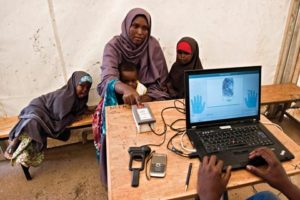Migrant-led journalism on the rise
 Changes in traditional media and growing use of social media are offering new avenues for ‘migrant-led’ media and journalism as well as a unique opportunity for migrants to highlight their concerns and contributions in their own words, according to a new United Nations report.
Changes in traditional media and growing use of social media are offering new avenues for ‘migrant-led’ media and journalism as well as a unique opportunity for migrants to highlight their concerns and contributions in their own words, according to a new United Nations report.
The World Migration Report by the UNs International Organization for Migration (IOM) says migrant-led journalism and commentary is changing the landscape around media coverage and the portrayal of migration.
It says there is significant research evidence, around the world, pointing to the media associating migrants with “bad news”.
But in the report such negativity is not unique to migration coverage, as journalists generally tend to emphasise problems and negative outcomes across most topics.
“Migration coverage is not only positive or negative, but also presents a variety of different issues, narratives and viewpoints… identifying how matters are framed is important because… media frames affect how people think about migration,” the report says.
It says there has been movement towards more positive – or at least more neutral – coverage of migration issues across several destination and origin countries that does not seem to be attributable to any particular event.
At the same time, rapid multiplication and diversification of social and online media brings potential for good but also pitfalls – in particular, “fake” news.
“Social media make it easy to approach specific audiences with political messages and materials, in ways that can be hard to detect and scrutinize. Such microtargeting of persuadable audiences, identified and contacted through their social media activity, is a growing phenomenon,” the report says.
It called for more research into the role of media in transit and origin countries – and particularly migrants’ own use of, and preferences for, different types of media.
“This is especially important for understanding how and to what extent information sources shape perceptions,” the report says.
It says more evidence about whether and how different types of messages and emotions shape public perceptions and policy activity on mobility would be valuable both within and beyond the world of research.
The report also called for more attention to different media systems and how they may or may not produce different kinds of content regarding migration, highlighting that the presence of highly differentiated experiences around the world suggests that greater levels of public debate about the appropriate role of media in specific contexts will move forward the conversations already happening in policy, civil society and research.
“Questions such as these will be debated differently across varied local, national and international contexts,” the report says.
“As a result, both producers and consumers of research should recognize that there is no single, universal way to sum up the role of the media, or to change media coverage of migration,” it says.
Laurie Nowell
AMES Australia Senior Journalist












